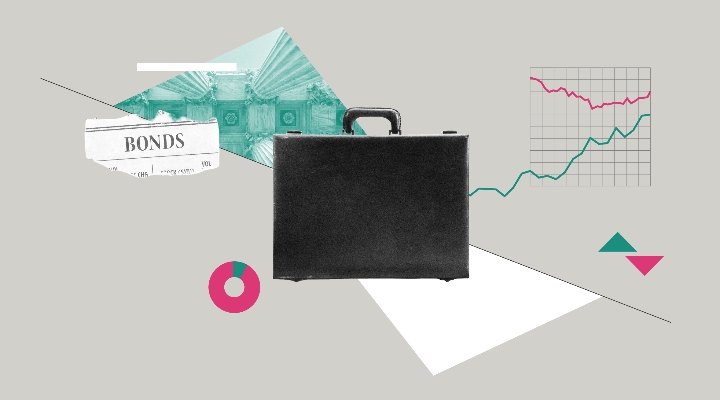This video is the first in a series that aims to explain the bond market to beginners.
Host: Alanna Petroff, financial journalist, Morningstar.co.uk
Guest: Gareth Isaac, senior portfolio manager, fixed income, Schroders
Bond Basics - Part 1
Isaac explains how bonds work and who would want to buy bonds.
Bond Basics - Part 2
Isaac explains the risks associated with investing in fixed income.
Bond Basics – Part 3
Isaac explains bond pricing.
Video Transcript:
Alanna Petroff: Welcome to the first instalment of Bond Basics. Understanding bonds can be a little bit tricky, so we're lucky to be joined here today by Gareth Isaac, who manages a number of different fixed income funds at Schroders.
Hi, Gareth.
Gareth Isaac: Hello.
Petroff: Thank you for joining me.
Isaac: You're welcome.
Petroff: So, let's start with the very, very basics: what is a bond?
Isaac: Okay. In simple terms, the bond is effectively an IOU. A company or a government issue a bond because they seek to raise capital. And what they do is they make a promise to the purchaser of that bond to make certain interest payments, which we call coupons, for a certain length of time, which we call the tenure of the bond. At the end of that period, they pay back the principal that they borrowed.
Petroff: Now why would a government or a company issue bonds?
Isaac: Okay, in a government, it's a normal part of financing and it's the difference between what governments raise in taxes and what they spend on schools and hospitals, et cetera. I think that governments at the moment are borrowing quite a lot of money so it's quite topical, if you like. Corporates do it for slightly different reasons. They do it to expand their business or if they're looking for a specific project that they need to invest in, then they will issue corporate bonds to the market.
Petroff: So, for example, if they want to do an acquisition, they might issue bonds to raise money for something like that?
Isaac: Sure, if they're building new plant, machinery, or expanding into a different country then they'll issue debt to do that.
Petroff: Now let's go over the different kinds of bonds that are out there in the market?
Isaac: Okay, as we suggested there are government bonds, there are many of those. There are also corporate bonds, and bonds issued by agencies like the EIB for example. Also there are fixed rate bonds, where you get a fixed payment each quarter or every six months. But you can also get floating rate notes, so they issue bonds which have an inflation adjustment to them. So that over that period of time if inflation rises, the coupon and the maturity amount rises.
Petroff: So, why would someone want to buy a bond? Equity seems a little bit easier sometimes.
Isaac: Yeah, sometimes it does. But in a balanced portfolio, you'd obviously like to have some equity, some property, and some fixed income. In your fixed income allocation, you'd have some government bonds and you'd have some corporate bonds as well. Historically, government bonds exhibit lower credit risk, although with the problems of the eurozone, maybe that's up for debate. But you'd have that mix in there as well. So, with government bonds you tend to get lower yield, lower return on them, but that's compensated for having the better credit risk in effect.
Petroff: Okay. So, if someone wanted to invest and they thought equity is a little bit risky right now, the markets are all over the place, I'm going to look to bonds… Where is a safe place, do you think, to put your money?
Isaac: Okay. Well, safe is a very subjective term. So, in order to build a balanced portfolio, you would still have some equities and some in corporate bonds and some in government bonds.
Corporate bonds are riskier than government bonds, and the reason for that is if you buy a UK government bond, for example, you have the weight of the entire British economy behind it. You'll have some more surety that they're going to make your redemptions and they're going to pay your coupons over time. With the corporate bonds, you're relying on one specific company and one specific sector. So obviously the risks and the returns on that are a little bit higher.
Petroff: Because that company could go bust.
Isaac: Yes. Exactly, it could go bust, or it could get into financial difficulties and not be able to pay its coupon and it could default on that. The principle behind government bonds is that you hope, all things being equal, that you get your money back at the end. But with corporate bonds there is a higher risk that you don't do that.
Petroff: Okay. Got it. Thank you very much.
Isaac: You're welcome.
Petroff: That was Gareth Isaac from Schroders, and I'm Alanna Petroff. Thanks for joining us.
This video was originally published on Morningstar.co.uk in May 2012.





























